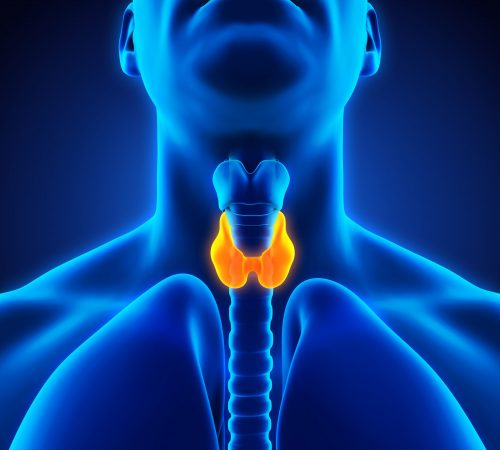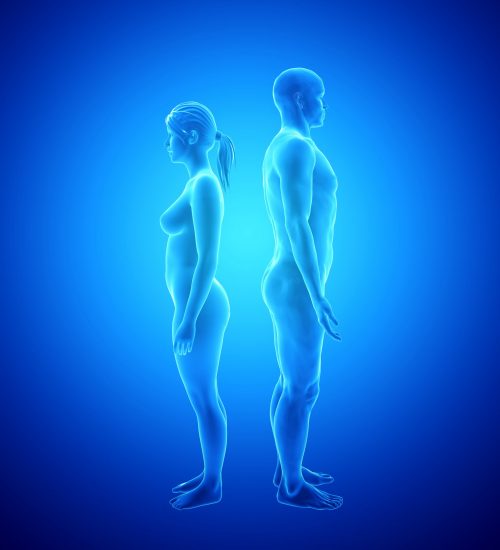The Importance of Balance

The premise behind testosterone replacement therapy is exactly that, replacement. We all recognise that we were at our healthiest when we had high testosterone levels, excluding other exogenous factors of course. Happy, healthy and horny! I think we’re all agreed, testosterone is pivotal to men’s health, so increasing testosterone to that level makes perfect sense.
Sounds great doesn’t it? The problem is, we have no reference for what your levels were when you were at your healthiest. We also have limited data to advise you what levels you should expect. What happens if your health is already compromised? Whilst it might be reasonable to expect your testosterone level to be lower if you are chronically unwell, in part due to stresses and strains exerted on other physiological processes, it also makes sense to increase that level since testosterone is anabolic, thereby helping facilitate healing.
You may have a primary hypogonadal pathogenesis, or a secondary one, or a mixed problem. Your health may be affected by a seemingly unrelated pathology or lifestyle issue. Of course, your genetics play an important part in determining what your levels should be. Your optimal level is your optimal level, there is no one size fits all protocol and there is no agreed optimal number. We are all unique and whilst we like to quantify and pigeon hole every aspect of what we perceive we can control, sometimes, that’s unrealistic and counter intuitive.
Wouldn’t it be wonderful to have your levels when you were at your healthiest as a reference? Modern healthcare isn’t preventative, it’s curative. I started Preventative Health Doctors Ltd because I was so frustrated with this model, patching up the cracks when it was the foundations that needed addressing. Men have had a raw deal, we put up and we shut up. It’s time to take a stance, it’s time to take your own health into your own hands and take responsibility for it. If you’re reading this blog, you’re probably not at your peak, but you could affect a change through spreading the word. Regular blood work is a must even if you feel great on the outside, not only will it serve as a reference point for challenging times, it may uncover something lurking in the background that needs attention now. Blood pressure is a wonderful example, it only bites you on the ass when you have that heart attack or stroke. It’s been high for years, but because you haven’t had any symptoms, it’s been allowed to exert its negative unsolicited effects on your health.
So many guys are chasing high numbers, however more isn’t always better. There are risks and benefits with every decision we make, however, there are some tell-tale signs your protocol may not be optimal for you. If you are needing an aromatase inhibitor, your levels are probably too high for your genetics. You are having oestrogenic side effects because the exogenous testosterone you are putting in your body is being aromatised causing the unpleasant side effects of oestrogen excess. It’s a balancing act, you likely need a lower testosterone dose or an adjustment of your injection frequency. There’s a reason that bodybuilders cycle anabolic steroids, they put massive amounts of stress on the body.
The reference range for the adult male in the UK is 12-29 nmol/l, so if you fall within those defined parameters, your levels are considered ‘normal’. It doesn’t matter if you are an 18 year old, otherwise fit, active young man or at the other end of the spectrum, in your 60’s with multiple co-morbidities.
It’s kind of a pointless discussion anyway. There is an argument that you should accept the decline in testosterone that occurs with age, as a natural consequence of aging. I have a theory though, we weren’t supposed to go on forever. It’s just nature’s way of making sure we don’t over populate the world. When we become adults and sexually mature, our testosterone levels are at their highest. We are supposed to procreate, then stay healthy long enough for our children to grow up, procreate and so on. Unlike females who have a definitive period in time when they go through the menopause, they essentially run out of eggs and oestrogen, we retain the ability to potentially procreate. I believe this is a survival need, if push came to shove, whilst his fertility is reduced, an older man could ensure the survival of the species by impregnating some young fillie. Just look at Mick Jagger!
“I can’t get no satisfaction” – Rolling Stones
Women don’t retain the ability to procreate past a certain age as it’s important for the female to still be healthy long enough for the developing foetus. If there is no biological advantage in allowing testosterone to drop, why on earth do we accept it as part of natural aging? We interfere with ‘natural aging’ all of the time, from the artificial chemicals we ingest in so called food-type substances, to medications such as statins and anti-hypertensives. A slight tangent here, but it irritates me seeing adverts promoting foods with 40% natural ingredients as if that is a positive thing! If it was accurate advertising, it should be ‘contains 40% natural ingredients, 60% artificial crap that helps preserve the shelf-life or adds colour to this food-type substance, or adds a chemical such as MSG or Aspartame that poisons you’. I think I’ll have 100% natural ingredients thank you. The incidence of prostate cancer is highest in men with low testosterone, ergo, having a healthy testosterone is more likely to be protective against prostate cancer. Testosterone gets broken down in part to dihydrotestosterone, it is this bi-product that influences the prostate gland. Having healthy levels of this hormone helps keep the prostate healthy, excess levels contribute to lower urinary tract symptoms such as poor stream, hesitancy, dribbling, nocturia. If you get prostate cancer, feeding it testosterone makes it more aggressive, it is androgen receptive, which is why we screen for prostate cancer with regular blood tests (PSA) and the dreaded yearly digital rectal examination in the over 40’s. If prostate cancer is hungry for testosterone yet it’s incidence is highest in men with low testosterone, surely keeping an optimal testosterone level makes perfect sense?
We all know the health benefits of using Human Chorionic Gonadotrophin alongside TRT to help maintain testicular size, fertility and possibly improve libido, but I have a theory about this too. It makes no sense allowing an organ to essentially become redundant. Testosterone suppresses production of Lutenising Hormone (LH) and Follicle Stimulating Hormone (FSH) from the pituitary. The testes no longer receive signals to produce testosterone and spermatogenesis. Non-functioning testes that are not receiving the normal signals that keep them healthy? Doesn’t sound sensible to me. Testosterone is naturally occurring within the body, so replacing a deficiency with a chemical identical in structure, apart from a few added carbon atoms, is surely a no-brainer? The answer is clearly yes, but there is a caveat. The body likes balance, it is essentially an incredibly sophisticated machine, it could work in perfect harmony with its natural environment but we expose it to all sorts of exogenous stressors which places a strain on this machine. If you’re lucky, you might just lose a few horsepower, if you’re unlucky, you might need a new engine and they’re unfortunately not being manufactured anymore, so you’re off to the junk yard. You are dealt the cards you are dealt, but how you play the game is what gets you the prize money. Genetics play a massively important role, but a healthy lifestyle, the correct nutrition and exercise can affect the game. Testosterone replacement therapy can help manipulate that game, it can stack the cards in your favour.
It’s important to understand that the Haynes manual we have for the human body is on the billionth edition and there is an addendum to all instructions:-
“Your model may differ slightly from the model described in this book.”
We are unique, it’s incredible really, we are so similar yet so different, we all react differently to our environment. We can predict through extensive research and academia the likelihood of a scenario occurring or not occurring, yet it’s still only a prediction. The probability of a different reaction occurring to what is expected, may be so small that it’s not statistically significant and isn’t worth consideration, but it’s still there.
Evidence is interesting, I wrote another blog ‘Beware Of The Expert’ about my concerns with people who simply don’t have the intellect and experience to start a sentence ‘The evidence says…’. There are many different types of evidence, quantitative to qualitative, prospective to retrospective, case controls to double blind randomised controlled studies, to meta-analysis. Each study has it’s own merits and it’s own faults, some are more valid than others, they are designed which means it’s very hard to remove any doubt of bias. Interpretation of said results is exactly that, up for interpretation.
When it comes to testosterone deficiency syndrome, testosterone replacement therapy is a bit of a sledge-hammer approach to this wonderfully intricate negative feedback system called the Hypo-Pituitary-Gonadal axis. Exogenous testosterone suppresses the pituitary from releasing LH and FSH as the brain recognises it has enough testosterone floating around and doesn’t need to produce more. With careful dose titration, regular blood tests and physical examinations, we can safely and effectively monitor your levels and your health. As discussed before, there isn’t a one size fits all protocol because we are all unique. We can make assumptions based on knowledge and experience, but it’s only when we put that into practice that we can see the results.
Who doesn’t love a bit of excess? Whether it be the occasional binge or a more regular occurrence, we know deep down that it’s exerting an ultimately negative effect on our bodies. There’s nothing wrong with that, it’s just important to understand the risks and benefits associated with those decisions. We often find out too late mind. I’m sure somebody dying of metastatic lung cancer, struggling to have enough energy to breathe, essentially drowning in air, wouldn’t have picked up that cancer stick in the first place had they known. Yet my granddad smoked til his 90’s, went through WW1 totally unscathed, luck or genetics or both? You have to play the cards you are dealt, but you don’t have to rig the deck against your favour.
So, what do we do when things go wrong? Apart from blame the Mrs or the dog? You look to what has changed recently. If you can attribute causation then you are part way there. If there are too many variables, then how do you attempt to find a solution? Guess? I’ve heard of guys starting on protocols of Sustanon (4 esters), HCG & Proviron, that’s 6 different variables! We already know people react differently to different medications, so if you have a problem with a protocol that has 6 different variables, which do you address first? You can make educated guesses, but that’s all it would be, sometimes more isn’t always better. Is your haematocrit elevated because of the Prop ester spiking stimulating erythropoiesis? Are you getting man boobs because of the HCG spiking your oestrogen? Are you getting up at night to pee because your prostate is irritated because of the rise in DHT secondary due to the Proviron? All, a combination, or only one, are potentially the problem.
My gold standard starting protocol is Testosterone Enanthate or Cypionate with HCG. Two medications, two variables. We carefully monitor your response to treatment through regular blood tests, physical examination and consultation. We then adjust your protocol to suit your individual needs. We rarely use adjuvants such as Anastrozole & Proviron as my guys simply don’t need them. Here at The Men’s Health Clinic, your protocol is your unique protocol, we are here to help you hit that ‘sweet spot’ and keep you there.
Dr Robert Stevens MBChB MRCGP Dip.FIPT


